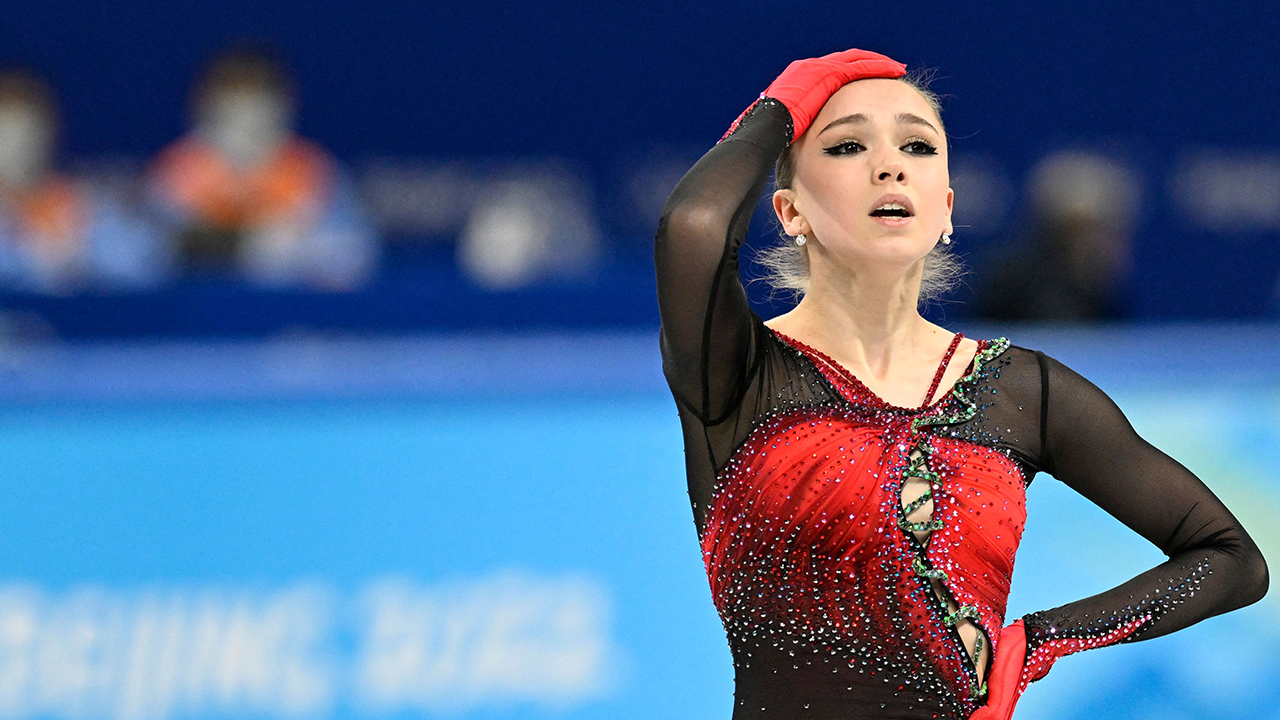Russian Kamila Valieva must be suspended. If not, the Olympics are forever tainted. | Opinion

- 15-year-old Kamila Valieva tested positive for a banned substance
- Russian officials appealed her provisional suspension and she has been allowed to practice
- She could still be suspended before Tuesday's short program
BEIJING – The International Olympic Committee has finally entered the Kamila Valieva fray, and just in the nick of time to try to save these Winter Olympic Games from themselves.
Breaking its silence on the utterly predictable Russian doping fiasco, the IOC is appealing a Russian Anti-Doping Agency (an oxymoron if ever there were one) ruling that allowed Valieva to continue practicing for Tuesday’s women’s short program.
The IOC has spoken. It wants Valieva suspended. It wants her out of these Games. And if that happens, the International Skating Union, the worldwide governing body for figure skating, would likely disqualify the gold-medal-winning Russian Olympic Committee from the team skating competition and reward the United States with the gold medal.
That’s great news for Team USA, but it’s better news for the Olympic movement. It’s hard to imagine something worse for the reputation of these already-controversial Games than having an Olympic drug cheat winning not one but two gold medals less than two months after she tested positive for a banned substance known to increase endurance and stamina.
FOLLOW THE CHASE FOR GOLD: Never miss a moment with our Olympic newsletter
TEXT WITH US AT BEIJING OLYMPICS: Subscribe to texts, where we’ll be your official guide to the Games
MEDAL COUNT: Where Team USA ranks
That Valieva is a minor, only 15, is troubling, engendering plenty of deserved sympathy. It is the adults around her, those who encouraged her use of a banned substance, who truly deserve our scorn.
But you can feel sorry for Valieva, the women’s gold-medal favorite and a once-in-a-lifetime talent, and still believe that she shouldn’t be allowed to step onto Olympic ice again.
It comes down to this: Are you for doping in sports, or are you not? If you believe every effort should be made to eradicate performance-enhancing drugs from sports, Valieva must be suspended.
There’s no gray area here, no middle ground. To not suspend her is to condone the cheating of those around her. To not suspend her is to tell Russia to keep doing what it’s doing, which is to spend nearly a decade fine-tuning its state-sponsored doping, with a slap on the wrist and a wink of the eye from the IOC.
To not suspend her is to forever taint these Olympic Games, to allow the bad guys to win, to allow fraud to rule over fair play.
One can’t help but think of all the athletes around the world who make it their life’s work to play by the rules, people like Michael Phelps and Katie Ledecky, who volunteer for extra drug tests and make sure to text the U.S. Anti-Doping Agency if they’re going to the grocery store for 30 minutes in case a tester knocks on the door for an unannounced test during that half-hour when they aren’t home.
Think of that, then think of the Russians, riding the grace and athleticism of Valieva to Olympic glory, then, so full of themselves and hardly chastened, doing it over and over again, to the next young star, and the next.
If you don’t stop them now, when will you stop them?
After the positive drug test became known Tuesday, Valieva was provisionally suspended by the Russian Anti-Doping Agency for the rest of the Olympic Games. But she appealed to the RUSADA Disciplinary Committee, and, wouldn’t you know, the Russians actually decided to lift the suspension of the top Russian skater, and she was at practice the next day.
Enter the IOC and the International Testing Agency, which is leading the anti-doping program at these Olympic Games. Not so fast, they said, announcing that they would appeal the Russian decision to lift Valieva's suspension to the Court of Arbitration for Sport (CAS), which has set up shop here for just these type of issues.
If CAS rules for the IOC and ITA and against Valieva, she would be expected to appeal to have the merits of the case reviewed by CAS for a final decision. All this has to happen before the women’s short program, one of the marquee events of the Games, begins Tuesday at 6 p.m. Beijing Olympic organizers must be thrilled that their friends the Russians have hijacked their Olympics in this manner.
Over the past few days, China has come dangerously close to having its Winter Games be known as the Olympics that allowed a confirmed drug cheat to win not one but two gold medals. It appears officials have finally awakened to that horror, and are doing something about it.